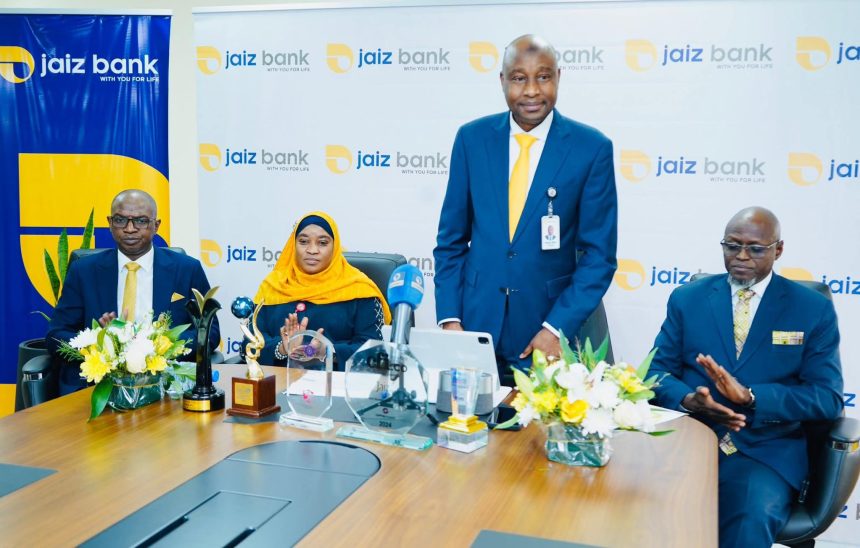Jaiz Bank, Nigeria’s leading Sharia-compliant institution, has rolled out a bold new corporate visual identity. The refreshed logo, updated colour palette, and modern design signal the bank’s aspirations to match technological innovation with evolving market expectations.
Unveiled earlier this week, the rebrand introduces a cleaner, minimalist logo rendered in lagoon (trust blue), sunburst yellow, and professional green—colours meant to convey stability, optimism, and sustainable growth. The bank’s leadership says the rebrand aligns with its ambition to become the dominant non-interest bank in Africa, alongside plans to expand support for MSMEs and drive digital transformation.
Branding Meets Influence
A surprising twist to the launch came when popular Nigerian influencer J.J. Omojuwa chimed in. His brief—but loaded—social media reaction, simply stating, “They said? Lol.” created buzz and speculation.
The political commentator and social media expert with 1.2 million followers sparked a mini-revolution with his yellow themed display photo, prompting many fans to change their display pictures too.
The bank playfully responded, joking on X: “How many retweets to make @Omojuwa your brand ambassador?” The exchange, viewed over 27,000 times, injects a relatable touch amid serious corporate commentary.
Strategy Behind the Redesign
Jaiz Bank’s Group Chief Executive explained the rebrand is more than skin-deep—it reflects a strategic pivot. Since its founding in 2012, Jaiz has financed over ₦500 billion worth of transactions. With the new identity, it seeks to deepen its digital-first credentials, aiming to surpass ₦1 trillion in financing and help Nigeria realize its $1 trillion economic goal by 2030.
The visual overhaul is designed to appeal to an increasingly tech-savvy customer base, providing a contemporary look while reinforcing values of trust and inclusivity.
Public Reaction: Digital Discourse and Skepticism
Reaction on social media has been mixed. Many users lauded the branding as sophisticated and forward-looking, especially praising its simplicity compared to older, more cluttered designs. The rebrand was viewed by others as a sign of the bank’s modernization and readiness for digital-era competition.
However, critics questioned whether a new logo alone is enough. Some pointed out that without improving digital service delivery, updating visual identity may feel superficial. This concern echoes a broader sentiment in technological discourse: design must follow substance.
Why This Matters for Africa’s Digital Economy
- Visual Identity as Digital Trust
In an era where trust influences customer acquisition, a modern logo can signal credibility. For banks operating in a skeptical market, visual cues matter as much as product offerings. - Influencer Leverage
The Omojuwa exchange underscores the power of digital personalities in Africa. Even a casual mention by a respected influencer can magnify reach and engagement. - A Wake-Up Call to Local Tech Innovation
If even banks are prioritising tech-friendly branding, fintech startups and digital services should follow. Rebranding becomes a mirror for deeper digital transformation. - Symbol Over Substance?
The rebrand invites scrutiny. African consumers are savvy; they want better mobile apps, faster onboarding, and reliable service—not just pretty icons.
Jaiz Bank’s rebranding is a visual exclamation mark—and one that resonates across digital-savvy audiences. It reflects confidence, ambition, and a nod to evolving customer sensibilities. Yet, its true value will be judged by upcoming action: whether Jaiz can translate this new facade into deeper digital experiences and financial inclusivity.
Because in a continent where tech defines tomorrow’s economy, the question isn’t just whether your institution looks modern—it’s whether your services feel that way too.
Talking Points
The new Jaiz Bank logo is sleek, modern, and signals digital ambition. But let’s be honest: African consumers have seen countless “rebrands” that end up as paint jobs on broken systems.
If Jaiz’s mobile app still lags or if customer onboarding remains clunky, then no amount of lagoon-blue or sunburst-yellow will build trust. Tech-savvy Africans don’t want symbols—they want seamless service.
The Omojuwa moment was more than banter—it showed how social credibility now shapes corporate perception. Banks used to court regulators and big investors.
Today, a single sarcastic tweet from a popular influencer can spark a PR wildfire. The future of African fintech will not just be decided in boardrooms but also in social media feeds.
In the West, logos and branding are part of a saturated consumer market. In Africa, perception often decides adoption. A trustworthy-looking app icon, a modern logo, or a viral influencer endorsement can push hesitant customers to give a service a try. But here’s the danger: if perception outruns performance, the backlash will be brutal.





